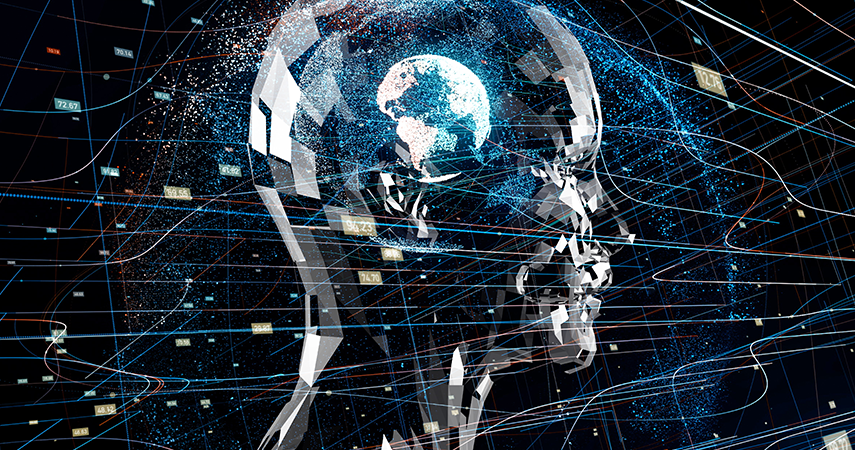AI: your online frenemy

AI is quickly becoming to go-to for online security, but is it really that safe?
Right now, artificial intelligence isn’t all that intelligent. AI systems get things done by processing large amounts of data and finding patterns. But real intelligence is a lot more complicated than pattern recognition.
For a very simplified explanation, take chess as an example.
An AI algorithm can either learn chess by studying chess games or by playing against itself. Since AI is much faster, it will study or play a lot more chess games than any human. The result is AlphaZero, a computer program that surpassed human chess grandmasters.
That sounds impressive until you realize that small talk — something that humans do without any effort — is still beyond AI’s reach. Our life is more complicated than a chess game and cannot be reduced to patterns.
That’s why you don’t need to worry about intelligent computers scamming you. But not for long.
AI used for evil
In 2018, Google introduced Duplex — an AI tool that makes restaurant reservations by phone. The program simulates human speech, using pauses, umms, ahhs, and other patterns of a natural way of speaking.
It’s not hard to imagine how cybercriminals could use a similar technology — a smart voice or text bot — to automate scamming. Even more, an AI will be able to simulate the voice of a particular person (a CEO of a company, for example) and perform a targeted, high-impact attack.
Standard cyberattacks will also increase both in volume and their sophistication. Cybercriminals will outsource the most resource-intensive elements of their “work” to AI and will focus on more targets at the same time.
The best defence against these attacks will also be AI-based. We may be standing at a starting point of a runaway process, where AI defenders and AI attackers play an infinite cat-and-mouse game while we watch at the sidelines.
AI used for good
Even now, cybersecurity experts are overwhelmed by ever-increasing cyberattacks. Without AI, it would become a losing battle.
The reason is simple. To identify a cyber threat, you need to process inhumanly large sets of data. But what takes hours for a human can be done in minutes by AI. Machines can sift through all the relevant data, recognize false positives, and find real threats among all the noise.
When AI systems detect anomalies, they notify human cybersecurity experts, leading them on the right path and reducing their workload significantly. But that’s just the first step.
READ MORE: 4 Useful reasons why you need a VPN when travelling
AI analysts can do much more than mere detection and notification. Just like the chess AI described above, AI analysts can find patterns by studying large amounts of data. So when they detect an anomaly, they analyze it from every angle, compare it to other cases, and identify the particular attack.
AI systems will soon be the default security measure because no human will match the speed and computing power of a machine.
What about your security?
In the speedy world of AI, you may think your online security is out of your hands. But that’s not true.
Cybercriminals are not interested in hacking you. They’re interested in hacking someone. Anyone, really. That’s why they will use AI to find and attack the most vulnerable users.
So don’t be an easy target
- Use secure passwords and do not reuse them.
- Get a password manager if you need to (and you probably do unless you can remember all the complex and unique passwords for all your accounts).
- Get a VPN. It’s the easiest way to encrypt your traffic.
- Do not click on suspicious links or emails.
